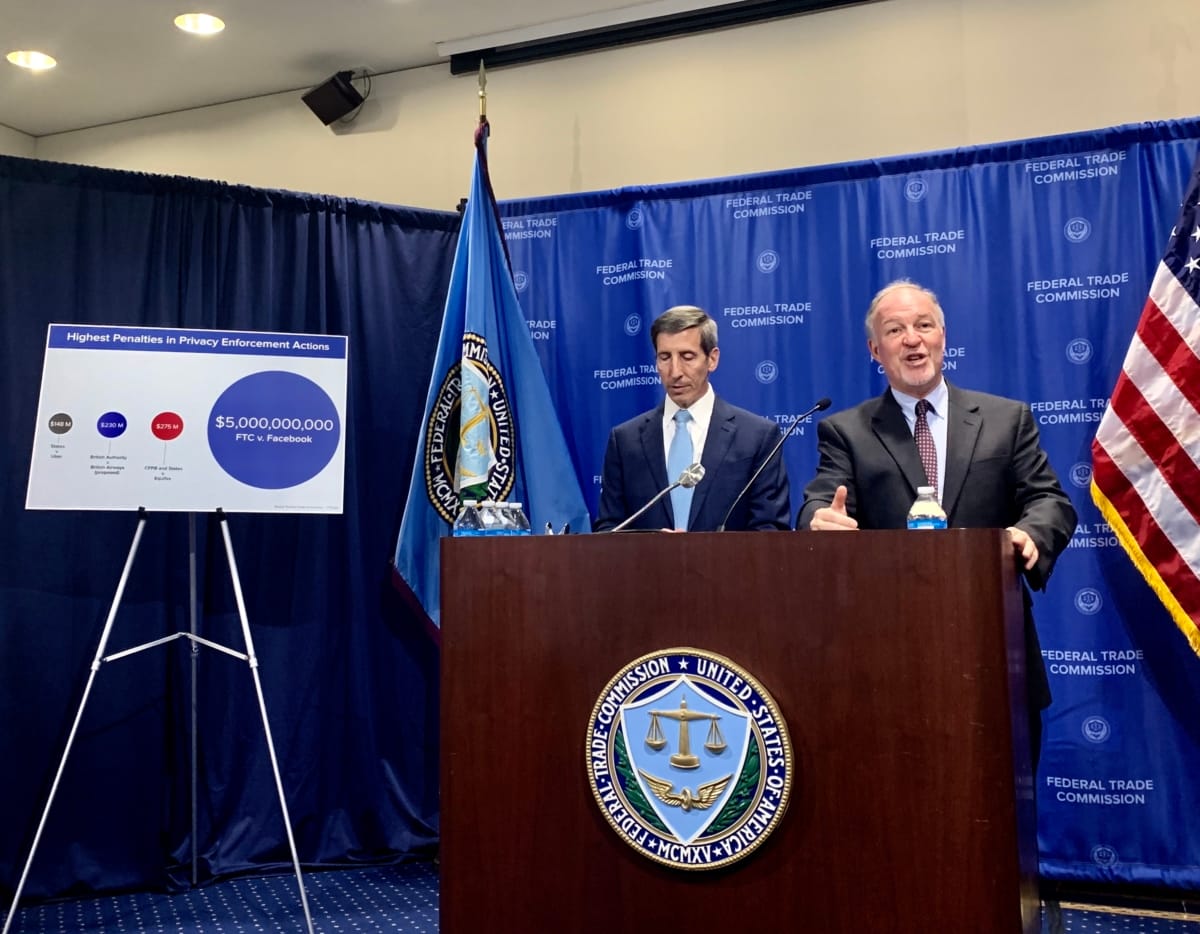Historic Facebook Settlement Criticized for Ineffectiveness; FTC Calls For Federal Privacy Law
WASHINGTON, July 24, 2019 — The Federal Trade Commission announced on Wednesday details of its $5 billion settlement with Facebook over privacy violations such as the Cambridge Analytica scandal. In addition to the fine, the company will have to provide quarterly compliance reports and form an indep

WASHINGTON, July 24, 2019 — The Federal Trade Commission announced on Wednesday details of its $5 billion settlement with Facebook over privacy violations such as the Cambridge Analytica scandal. In addition to the fine, the company will have to provide quarterly compliance reports and form an independent privacy oversight committee.
FTC Chairman Joe Simons celebrated the “record-breaking penalty,” claiming that it was “all the more remarkable given the FTC’s limited authority.”
However, many believe that the record-breaking fine was not punishment enough, including Democratic Commissioners Rebecca Slaughter and Rohit Chopra, who both dissented.
“I understand the majority’s argument in favor of the terms of the settlement, and I recognize the settlement’s historic nature,” said Slaughter in her dissent. “But I do not share my colleagues’ confidence that the order or the monetary penalty will effectively deter Facebook from engaging in future law violations, and thus I fear it leaves the American public vulnerable.”
“Facebook is getting away with some of the most egregious corporate bad behavior in the age of the internet,” said Sen. Ed Markey, D-Mass. “This settlement is a partisan abdication of the FTC’s duty. The only market-wide message the Commission is sending is that it is acceptable for online giants to beg for forgiveness afterward rather than get permission first.”
Critics of the decision claimed that Facebook is unlikely to change its current course of action under the terms laid out in the settlement. These terms “fail to address the business model that incentivizes the invasive and manipulative practices the company was fined for,” said Free Press Policy Counsel Gaurav Laroia.
“Under this settlement, Facebook does not have to meaningfully change how it collects and uses your data,” said Charlotte Slaiman, competition policy counsel at Public Knowledge. “Facebook retains complete control over when to share your data outside of Facebook, as long as the company complies with the privacy policy that it gets to write.”
Chopra agreed, writing that “the order allows Facebook to decide for itself how much information it can harvest from users and what it can do with that information, as long as it creates a paper trail.”
The agency lacks the authority to implement new privacy legislation, replied Simons at a press conference on Wednesday, and so all the agency could do was to force Facebook to be transparent. Choosing to litigate the case would have resulted in “much less relief, much later,” he said.
Republican Commissioner Christine Wilson added that the documentation being required of Facebook is goes far beyond a paper trail, requiring the company to do an in-depth analysis of privacy concerns—and force CEO Mark Zuckerberg to take responsibility.
Although most critics felt that the $5 billion fine was too small for the tech giant, others warned that the historic fee set a dangerous precedent.
While Facebook can easily afford this settlement, few other tech platforms would be able to, said TechFreedom President Berin Szóka in a statement.
“Nothing could do more to discourage competition with today’s tech giants than the looming threat of such massive fines,” he said. “Those cheering today’s settlement as a victory against Big Tech should think twice about its long-term effects on those trying to dethrone Facebook.”
Szóka also criticized the way in which the fine was implemented, calling it a “legal sleight of hand.” Since the FTC act limits penalties for new charges, the agency was only able to impose a monetary penalty on Facebook by charging the company with the violation of an unrelated 2012 privacy consent decree.
Both proponents and opponents of the settlement agreed on the overwhelming need for Congress to pass privacy legislation.
The limits of the FTC’s authority make “carefully crafted, comprehensive federal privacy legislation” essential, said Wilson, emphasizing the agency’s bipartisan interest in such action.
“Without corrective action, the business of behavioral advertising is bound to harm our social, political and private lives again and again,” said Laroia. “It’s now up to Congress to pass legislation to protect our privacy, our democracy and our civil rights.
If Congress passes privacy legislation, the FTC is prepared to enforce it, said Simons, adding that the agency is using its existing authority “to very effective ends.”
(Photo of FTC Press Conference by Emily McPhie.)








